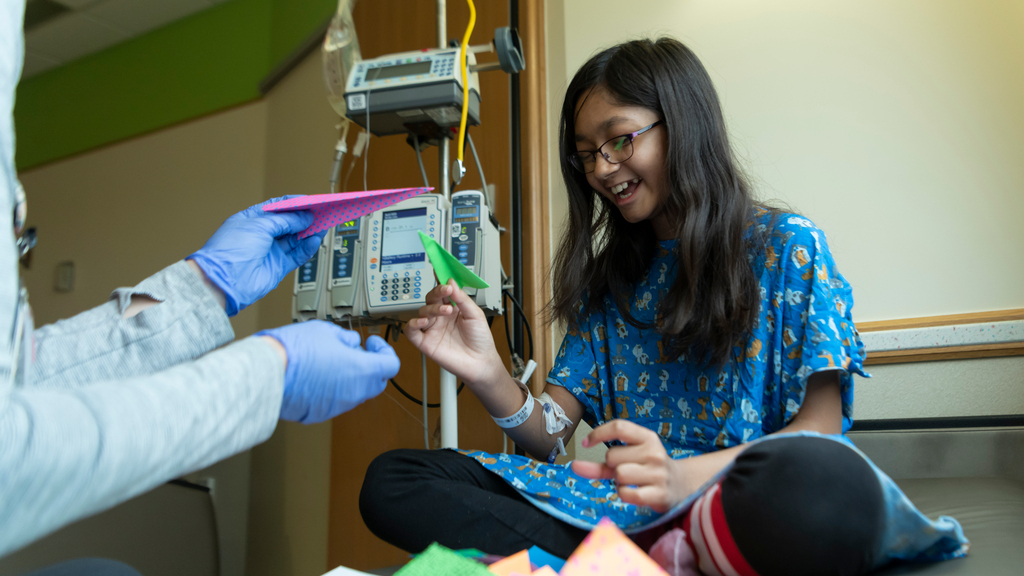Condition
Pediatric Kawasaki Disease
Key Points about Kawasaki Disease in Children
- Kawasaki disease is a serious condition that affects young children. It can damage blood vessels throughout the heart.
- Kawasaki disease is diagnosed by having certain symptoms. For example, a fever lasting at least five days.
- Your child’s healthcare provider will treat Kawasaki with aspirin, intravenous immune globulin (IVIG), or other medicines.
- A child with Kawasaki disease may have serious complications, especially ones affecting the heart.
Frequently Asked Questions
Prevention and Risk Assessment
What is Kawasaki disease in children?
Which children are at risk for Kawasaki disease?
What causes Kawasaki disease in a child?
What are possible complications of Kawasaki disease in a child?
When should I call my child's healthcare provider?
Diagnosis
How is Kawasaki disease diagnosed in a child?
What are the symptoms of Kawasaki disease in a child?
Treatment
How is Kawasaki disease treated in a child?
How do I manage Kawasaki disease in my child?
Meet the Providers Who Treat Kawasaki Disease
Departments that Treat Kawasaki Disease

Infectious Diseases
Our Division of Infectious Diseases is the major referral center for infectious diseases in the Washington, D.C., area, helping thousands of patients each year, and actively promoting prevention through community outreach and education. Learn more about this division.

Rheumatology
Rheumatology experts at Children's National manage autoimmune and inflammatory disorders affecting a growing child's muscles, connective tissues and joints, including fibromyalgia, arthritis, lupus and more. Learn more about this department.
Schedule Appointment
Kawasaki Disease Program
We treat children who are newly diagnosed with Kawasaki disease as well as children who have developed coronary artery aneurysms as a result of having Kawasaki disease. Learn more about the Children's National Kawasaki Disease Program.




